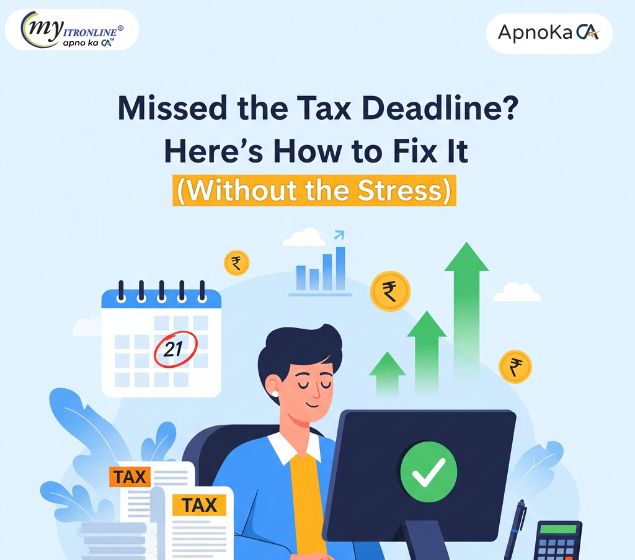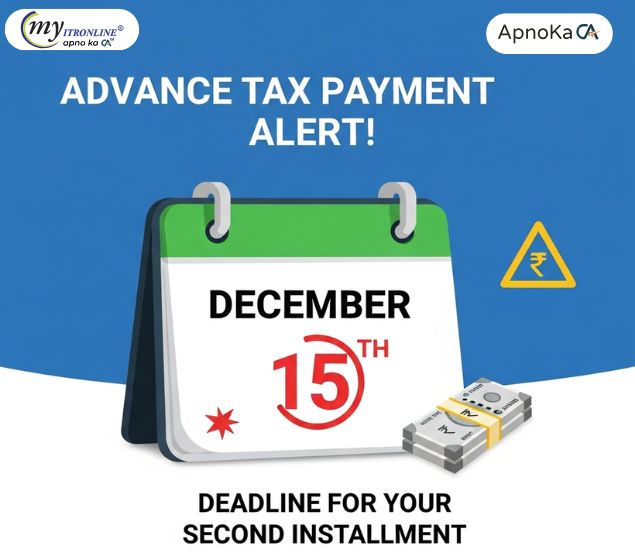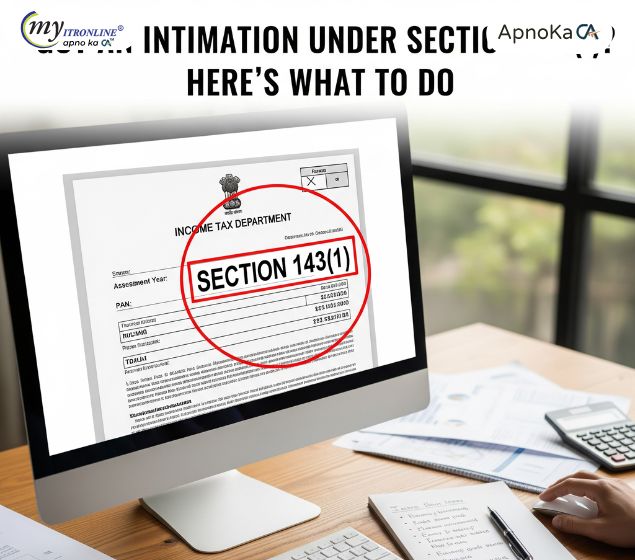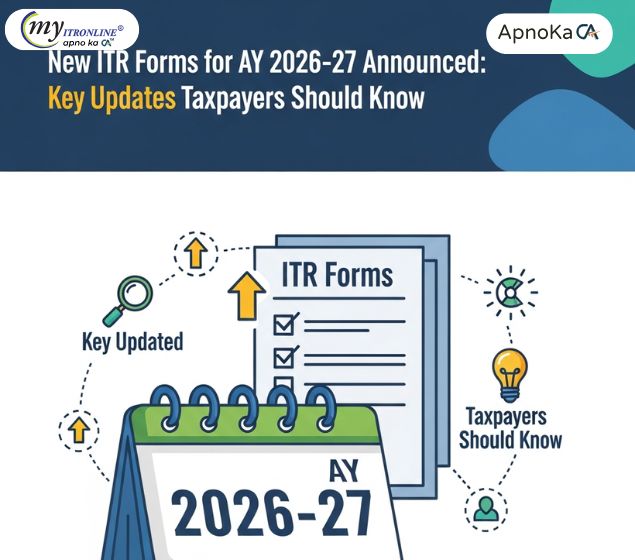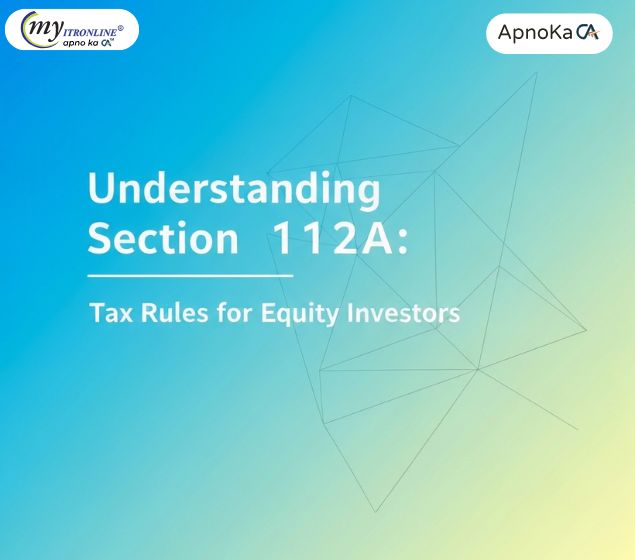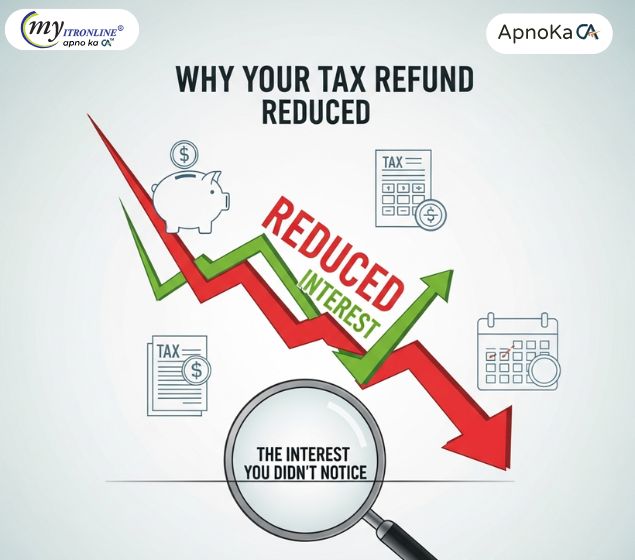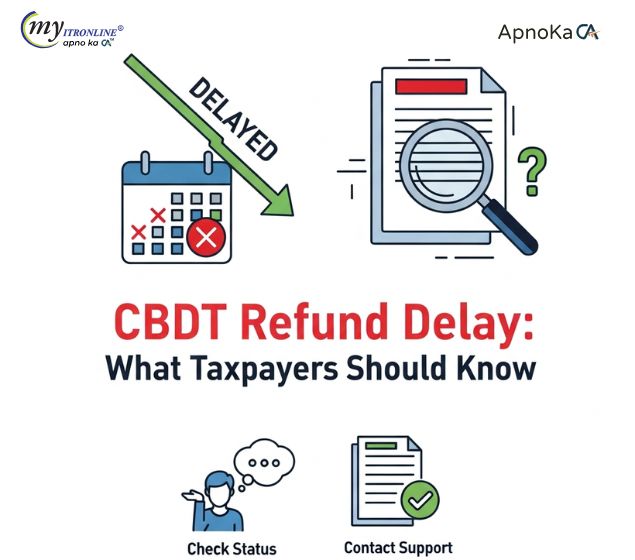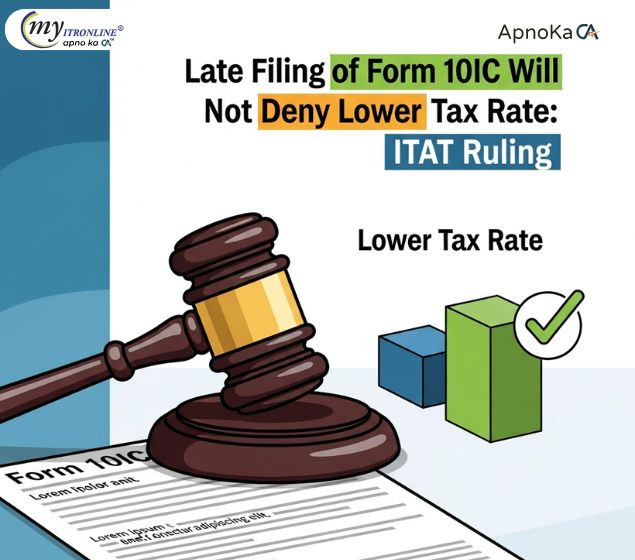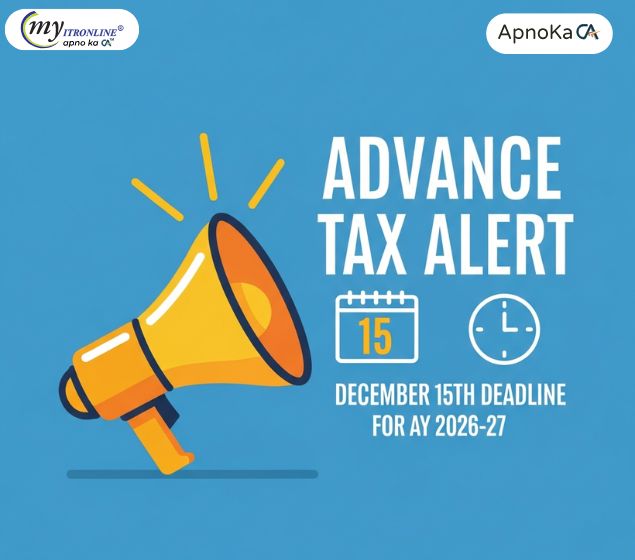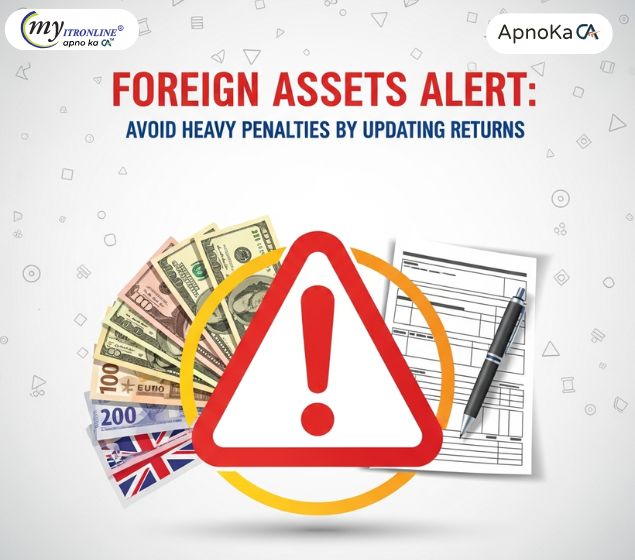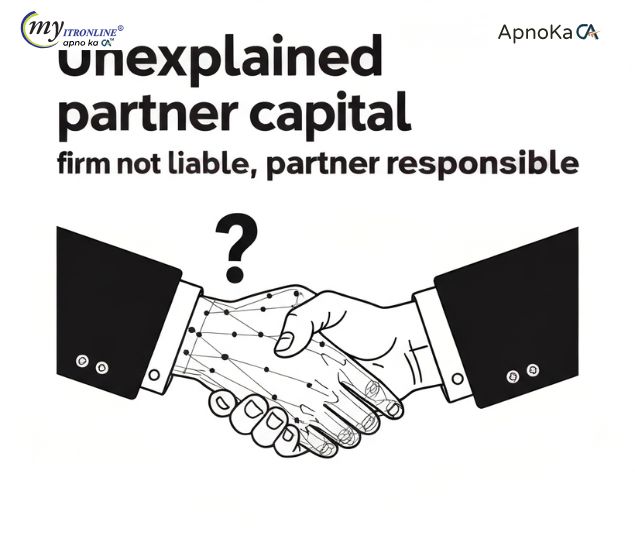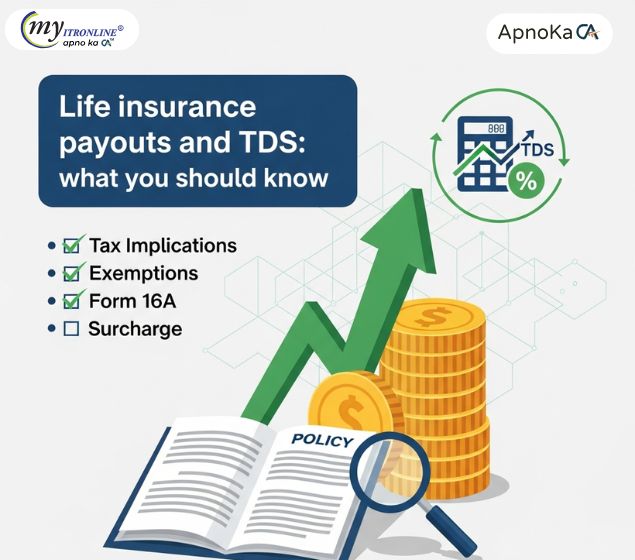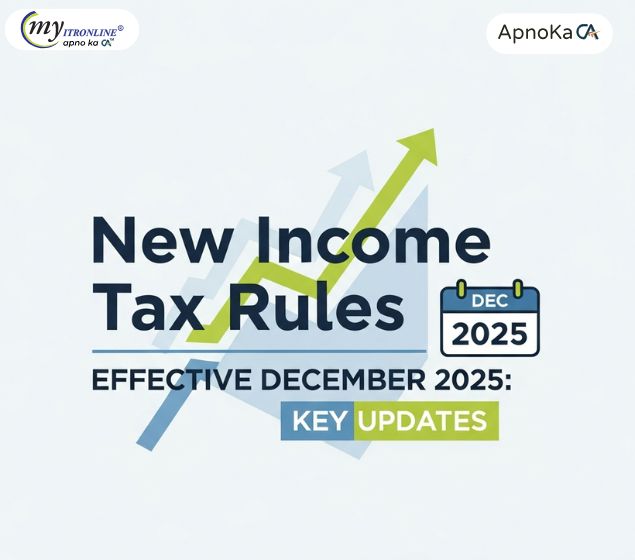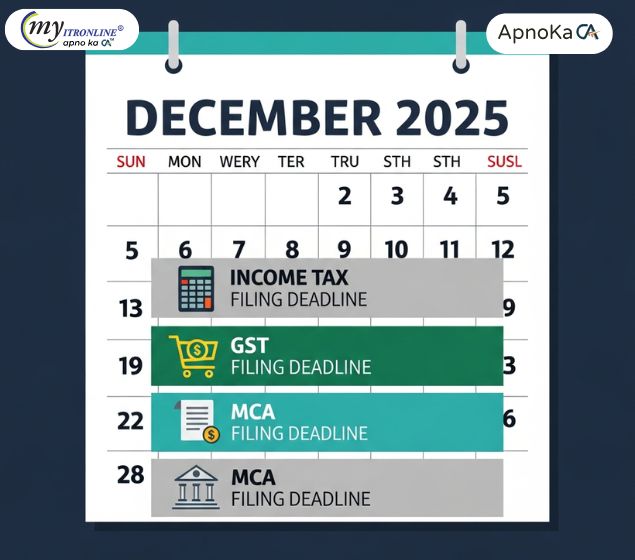Understanding the Impact of Section 142(1) Notices for Missing Deductions in Your ITR
This comprehensive blog post demystifies Section 142(1) notices from the Income Tax Department, specifically when issued for missing or incorrect deductions in your ITR. It explains the purpose of such notices, common reasons for their issuance (like Form 26AS/AIS/TIS mismatches or lack of supporting documents), and provides a step-by-step guide on how to prepare an accurate and timely response. The post also highlights the severe consequences of non-compliance and offers valuable tips for prevention through meticulous record-keeping and thorough ITR review.
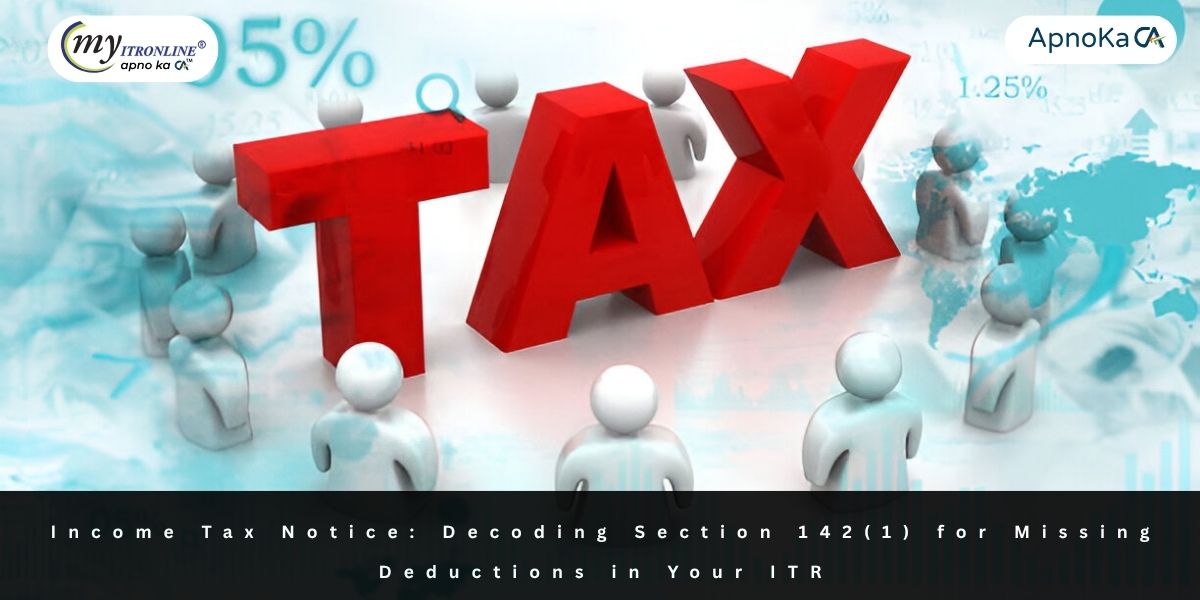
Receiving a notice from the Income Tax Department can trigger panic. Among the different types of notices, a Section 142(1) notice is one that taxpayers often face. While it can be issued for various reasons, this post will focus on cases where it is issued because the Assessing Officer (AO) found missing or incorrect deductions in your Income Tax Return (ITR).
This notice is not an assessment order; it is an intimation or inquiry asking for more information or clarification. Ignoring it is not an option, as it can lead to serious consequences.
What is a Section 142(1) Notice?
Section 142(1) of the Income Tax Act, 1961, allows the Assessing Officer (AO) to:
- Require the taxpayer to provide a return of income: This happens if you haven't filed your return by the due date or at all.
- Require the taxpayer to produce accounts or documents: This is critical for missing deductions. The AO can ask for specific books of accounts, documents, or other information necessary for assessment.
- Make inquiries: The AO can inquire about your income or the income of another person related to the taxpayer's assessment.
In essence, a Section 142(1) notice is formal communication from the Income Tax Department saying they need more information or clarification regarding your filed ITR or if you haven't filed one. It's a step before the assessment, helping the AO gather necessary facts before deciding your tax liability.
Why Would You Receive a Section 142(1) Notice for Missing Deductions?
The main reason for receiving a Section 142(1) notice about deductions is usually a mismatch between the information the Income Tax Department has and the deductions claimed in your ITR. Here are some common scenarios:
Mismatch with Form 26AS/AIS/TIS:
- Form 26AS: This is the most common reason. If you’ve claimed deductions reducing your Gross Total Income (GTI), like under Sections 80C, 80D, etc., but the corresponding income (e.g., salary, interest) or related details (like life insurance premiums paid, health insurance premiums paid) do not match what is shown in Form 26AS, the AO might ask for clarification. For example, if your Form 26AS shows a particular salary, but your claimed deductions reduce your taxable income much more than expected based on standard deductions, this may invite scrutiny.
- Annual Information Statement (AIS) & Taxpayer Information Summary (TIS): These provide a broader view of financial transactions (such as mutual fund purchases, property dealings, high-value deposits, etc.). While not directly tied to claiming a deduction, discrepancies here could lead the AO to investigate your overall income and, by extension, your claimed deductions. For instance, if a large deposit appears, and you claim significant deductions that suggest lower income, it could raise concerns.
Lack of Supporting Documents:
While you typically don’t submit supporting documents with your ITR, the AO assumes you have them. If they suspect a deduction is unusually high, or if it relates to a rare section, they might ask for proof. This is common for deductions like HRA, housing loan interest, and certain medical expenses.
Unusual or Large Deductions:
If your claimed deductions are much higher than in previous years or unreasonably large compared to your declared income, it can raise a red flag and prompt the AO to check the legitimacy of these claims.
Incorrect Section Claimed:
You might have claimed a deduction under the wrong section or for an ineligible expense. The AO could discover this based on their internal data or analysis.
Data Analytics and AI Flagging:
The Income Tax Department increasingly uses data analysis and AI tools to find potential discrepancies. These systems compare your ITR data with information from various sources (banks, employers, property records, etc.) and highlight areas needing scrutiny. A claimed deduction without corresponding verified data could be flagged.
What to Do When You Receive a Section 142(1) Notice for Missing Deductions
DO NOT IGNORE IT. Ignoring the notice can result in significant penalties, including a best judgment assessment where the AO assesses your income based on their judgment, which can be very unfavorable.
Here’s a step-by-step guide:
- Read the Notice Carefully: Understand why the notice was issued. What specific deductions or information do they need? Note the Assessment Year, the response deadline, and the AO's contact details.
- Gather All Relevant Documents:
- Proof of Deductions: Collect documents that support the deductions you claimed. This includes:
- Section 80C: Life insurance premium receipts, PPF passbook, ELSS statements, home loan principal repayment certificates, tuition fee receipts, NSC certificates, etc.
- Section 80D: Health insurance premium receipts.
- Section 80E: Education loan interest certificates.
- Section 80G: Donation receipts.
- Section 24(b): Home loan interest certificates.
- HRA: Rent receipts, rent agreement, landlord's PAN (if rent exceeds ₹1 lakh annually).
- Any other specific deduction documents as claimed.
- Form 16/16A, Form 26AS, AIS, TIS: Compare these with your ITR.
- Bank Statements: For verifying premium payments, loan EMIs, etc.
- Proof of Deductions: Collect documents that support the deductions you claimed. This includes:
- Prepare a Detailed Response:
- Online Response: Most responses to these notices are now submitted online via the e-filing portal under the "e-Proceedings" or "Compliance Portal" section.
- Clear and Concise: Address each point raised in the notice clearly.
- Attach Supporting Documents: Upload scanned copies of all relevant documents. Ensure they are legible and properly organized.
- Explanation for Discrepancies (if any): If you made an error or have a valid reason for a discrepancy, explain it clearly. For instance, "The health insurance premium was paid in cash for Mr. X, who is over 60 years old, according to Section 80D rules."
- Revised ITR (if necessary): If after reviewing your documents you find you made an error in claiming a deduction or forgot to report certain income, it may be wise to file a revised return before responding to the notice, if the revision window allows. If not, acknowledge the error in your response.
- Seek Professional Help (If Needed): If the notice is complicated, involves large amounts, or you are unsure how to gather or present the information, consulting a tax professional (Chartered Accountant) is advisable. They can help you understand the notice, gather documents, write a proper response, and represent you if necessary.
- Submit Before the Deadline: Make sure your response and all documents are submitted well before the deadline mentioned in the notice.
Consequences of Non-Compliance or Inaccurate Response
- Best Judgment Assessment (Section 144): If you fail to respond to the notice or if the AO is not satisfied with your response, they can proceed with a best judgment assessment. This means the AO will assess your income and tax liability based on their best judgment, often disallowing questionable deductions and adding presumed income, leading to a much higher tax bill.
- Penalties: Penalties can be imposed for non-compliance, such as a penalty under Section 271(1)(b) for failing to respond to a notice.
- Interest: Interest under Sections 234A, 234B, and 234C may be charged on any unpaid tax.
- Further Scrutiny: An inadequate or evasive response can lead to a more detailed examination under Section 143(3).
- Prosecution: In extreme cases of deliberate non-compliance or providing false information, prosecution can be initiated.
Prevention is Better Than Cure
To reduce the chances of receiving a Section 142(1) notice, particularly concerning deductions:
- Maintain Meticulous Records: Keep all proof of investments, premium receipts, loan statements, rent receipts, donation receipts, and other relevant documents for at least 6 to 8 years.
- Reconcile with Form 26AS/AIS/TIS: Always cross-check your income and deductions with the information in your Form 26AS, AIS, and TIS before filing your ITR. These forms are essential.
- Understand Deduction Rules: Make sure you fully understand the eligibility criteria and limits for each deduction you claim.
- Review Your ITR Before Filing: Double-check all figures and sections before submitting your return.
- File Accurately and Honestly: Always provide accurate and complete information.
Conclusion
A Section 142(1) notice can be concerning, but it is an opportunity to clarify your tax situation. By understanding its purpose, gathering the right documents, and responding accurately and on time, you can effectively address the Income Tax Department's questions and ensure a smooth assessment process. When in doubt, always seek professional assistance.
FILING YOUR INCOME TAX RETURN F.Y 2024-25 (A.Y. 2025-2026) WITH MYITRONLINE
The income tax filing deadline is right around the corner. If you haven’t filed yet, do it today with Myitronline! Avoid last minute rush and file your tax return today on MYITRONLINE in Just 5 mins.(www.myitronline.com)
If you are looking for eCA assistance to file your income tax return/ GST, you can opt for MYITRONLINE eCA assisted plan starting
Upload Salary Individual Form-16
If you have any questions with filing your tax return, please reply to this mail. info@myitronline.com OR call 9971055886,8130309886.
Note-All the aforementioned information in the article is taken from authentic resources and has been published after moderation. Any change in the information other than fact must be believed as a human error. For queries mail us at marketing@myitronline.com
Krishna Gopal Varshney
An editor at apnokacaKrishna Gopal Varshney, Founder & CEO of Myitronline Global Services Private Limited at Delhi. A dedicated and tireless Expert Service Provider for the clients seeking tax filing assistance and all other essential requirements associated with Business/Professional establishment. Connect to us and let us give the Best Support to make you a Success. Visit our website for latest Business News and IT Updates.
Leave a reply
Your email address will not be published. Required fields are marked *Share this article
Krishna Gopal Varshney, Founder & CEO of Myitronline Global Services Private Limited at Delhi. A dedicated and tireless Expert Service Provider for the clients seeking tax filing assistance and all other essential requirements associated with Business/Professional establishment. Connect to us and let us give the Best Support to make you a Success. Visit our website for latest Business News and IT Updates.
View articles








